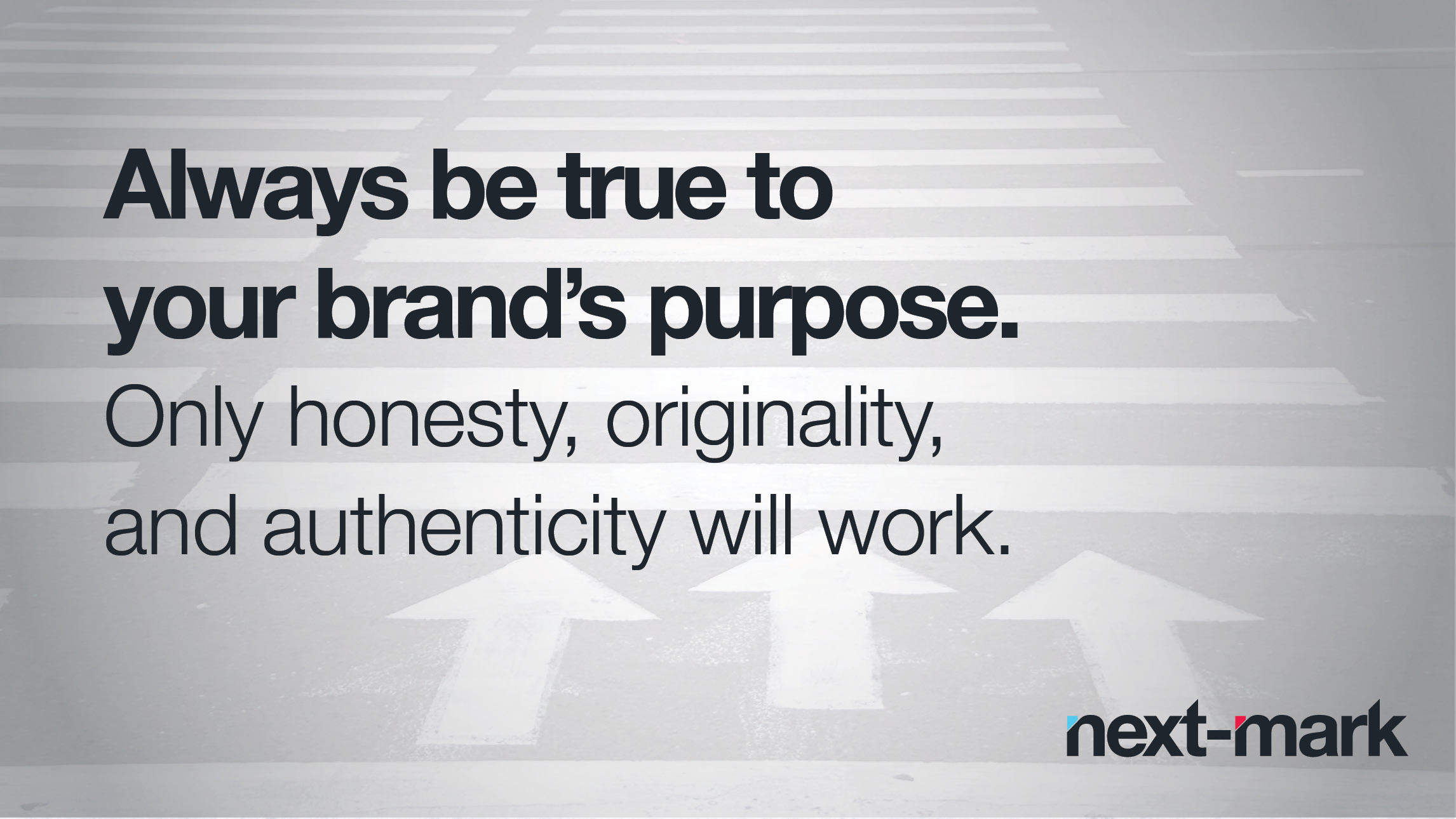
Picture this – you’re a brand new start-up company looking to make your mark in the world, so naturally one of the first things you focus on is creating and building your brand. You select your name, create a logo, map out your yet-to-be-built website, and develop your brand standards guide that will soon be emailed out to your employees in an email explaining how they should communicate in order to uphold this new brand – all in an email showcasing your new standardized signature, of course.
And you’re doing all of this while simultaneously outlining your new brand strategy. No one said building a brand was easy. When your brand to-do list starts to resemble your Christmas shopping list, it’s time to take a step back and simplify. Instead of focusing on who you are and what you look like to the consumer, it may be better to determining your brand’s purpose, or what it is that your company promising to deliver to your consumer.
Once you’ve identified the end game – how you envision your brand to ultimately become – then all of the rest of these pieces will fall into place within an integrated approach.
As Philip Kotler, sometimes referred to as the “father of modern marketing,” explains in his recent article Branding: From Purpose to Beneficence, when building a brand a company needs to use positioning and differentiation to communicate the brand’s purpose and ultimately enrich the brand’s identity.
According to Kotler, in addition to purpose, positioning and differentiation, you also need brand trust (so that customers will believe that the brand will deliver what it claims), followed by brand beneficence (whether the brand serves the person and the society well). A socially responsible company needs to shape its offerings to minimize personal or societal ill-effects of their brand offering.
Building a brand should always be an integrated process. It’s more designing a logo or selecting a color palette. But instead of making it complex and complicated, Kotler recommends following these guiding principles and just be true to your brand’s purpose. Only honesty, originality, and authenticity will work.
And of course remember, once you’ve created your brand, it isn’t doing much for your company unless people are talking about it. Take it a step further and engage your customers in conversation about your brand. Ask us how we can help create a meaningful conversation about your brand.